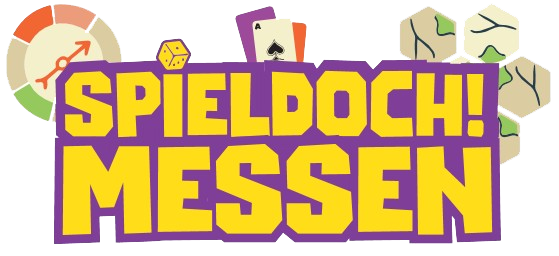26.01.2021 – [English translation below] Offensichtlich gehören Lamas zu den beliebtesten Tieren und damit zu hervorragenden Werbeträgern. Gut, vielleicht nicht auf dem Niveau wie Kätzchen mit eigenem TikTok-Account, aber doch dicht dahinter. Clevere Marktanalysten wie Dr. Reiner Knizia haben das früh erkannt und sich extra sogar einen Spielprinzip ausgedacht, dass sich dann perfekt mittels eines Neuweltkamels vermarkten lässt: Lege alle Minuspunkte ab! Hanno Girke, Chef des Asmodee-Familienmitglieds Lookout Spiele, ist das wohl nicht entgangen. Er setzt in diesem Jahr auf das Llama, sogar in tradierter Schreibweise mit Doppel-L. Bekanntgegeben im Rahmen der lediglich als Online-Plattform existenten Spielwarenmesse in Nürnberg.
Llamaland also heißt die auf tierisches Marketing setzende Familienspiel, das da irgendwann kommen wird (wann verrät der Eintrag im Messe-Katalog leider nicht). Phil Walker Harding, der bei Lookout auch Bärenpark veröffentlicht hat, steckt dahinter. Und weil auch Landwirtschaft ein Thema ist, das bei Lookout-Spielen immer gut funktioniert, geht es darum: Ackerbau in den Hochplateaus der Anden. Lamas und Landwirtschaft bei Lookout, ist nicht nur eine tolle Alliteration, sondern eben auch ein veritables Verkaufsvehikel. Kartoffeln, Mais und Kakao tauschen die Hochland-Bauern gegen Lamakarten. „Diese Karten bringen nicht nur Siegpunkte, sondern erlauben es auch, ein Lama auf der Farm zu platzieren.“ Rund 45 Minuten soll eine Partie dauern – und damit wirklich alle Fans schwach werden, finden sich in der Box auch 33 Lamas.
Wie es sozusagen schon Tradition bei Lookout ist, gibt es auch wieder ein Spiel für zwei. Entworfen wurde es von Trevor Benjamin und Brett J. Gilbert, den beiden also, die bereits hinter Mandala steckten und maßgeblich dazu beigetragen haben, dass Bonsai-Tischläufer als Spielplan populär wurden. Worum geht es? „Ein geheimnisvolles Spiel über ein nicht so geheimnisvolles Verhalten unserer Art: Zwei Spieler konkurrieren um die Vorherrschaft über die Great Plains! Mit Hilfe der spirituellen Tierwelt überwinden sie Hügel, durchqueren das Tiefland und dringen in das Territorium des anderen ein, um der Stamm zu werden, der weiterleben wird.“
Und sonst? Nun, natürlich gibt es Erweiterungen für Uwe Rosenberg-Spiele. Das Konsul Dirigens Deck für Agricola, Frantic Friends für Caverna sowie die Big Box vom Caverna-Zweier Höhle gegen Höhle.
Ach ja. Lookout beschenkt die 18xx-Gemeinde noch, und zwar mit 1880 China aus der Feder der wohl würdigsten geistigen Nachfolger von Francis Tresham überhaupt: Leonhard Orgler und Helmut Ohley. Zudem gibt es die Wiedergeburt eines wirklichen Klassikers: Family Business von David B. Bromley, 1982 erstmals bei der ehemaligen Lookout-Mutter Mayfair Games erschienen, kommt nun zurück. In diesem Spiel sind alle die Köpfe eines Gangster-Clans und haben nur ein Ziel: die anderen ehrenwerten Familien aus der Stadt zu vertreiben, denn sie ist zu klein für mehr als eine Familie … (ab)
_____
Lookout Spiele goes to the llamas
Obviously, llamas are among the most popular animals and therefore excellent "testimonials" for advertising. Well, maybe not on the same level as kittens with their own TikTok account, but still close behind. Clever market analysts like Dr. Reiner Knizia recognized this early on and even came up with a game concept that can be perfectly marketed using a New World camel. Hanno Girke, head of Asmodee group member Lookout Spiele, has probably not missed this. This year, he is betting on the llama. The announcement was made at the Nuremberg Toy Fair, which in 2021 exists only as an online platform.
Llamaland is the title of a family game relying on animal marketing, due to be released at some point (unfortunately, the entry in the fair catalog does not reveal when exactly). Phil Walker Harding, who also published Bärenpark at Lookout, is behind it. And because agriculture is also a topic that always works well in Lookout games, this is what it's all about: farming in the high plateaus of the Andes. Highland farmers trade potatoes, corn and cocoa for llama cards. "These cards not only provide victory points, but also allow you to place a llama on the farm." A game should take around 45 minutes; no fewer than 33 llamas should satisfy even the most ardent fans.
As is practically a tradition at Lookout, there's also a new game for two. It was designed by Trevor Benjamin and Brett J. Gilbert, the two minds behind Mandala who've played a major role in making bonsai table runners popular as a game board. What's it about? "A mysterious game about a not-so-mysterious behavior of our species: two players compete for dominance of the Great Plains! With the help of spiritual wildlife, they conquer hills, cross lowlands, and invade each other's territory to become the tribe that will survive."
What else? Well, of course, there are expansions for Uwe Rosenberg games. The Konsul Dirigens Deck for Agricola, Frantic Friends for Caverna, and the big box of Caverna's two-player edition Cave vs Cave.
One more thing. Lookout presents the 18xx community with 1880 China, created by the arguably most worthy intellectual successors of Francis Tresham: Leonhard Orgler and Helmut Ohley. In addition, there's the rebirth of a real classic: Family Business by David B. Bromley, first published in 1982 by former Lookout parent Mayfair Games, will have a comeback. In this game, everyone is the head of a gangster clan and has only one goal: to drive the other honorable families out of town, because it's too small for more than one family ... (ab)





